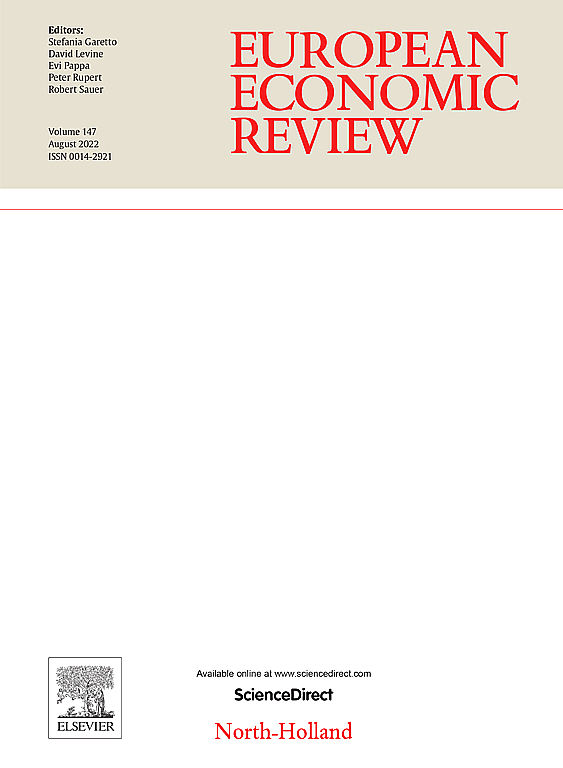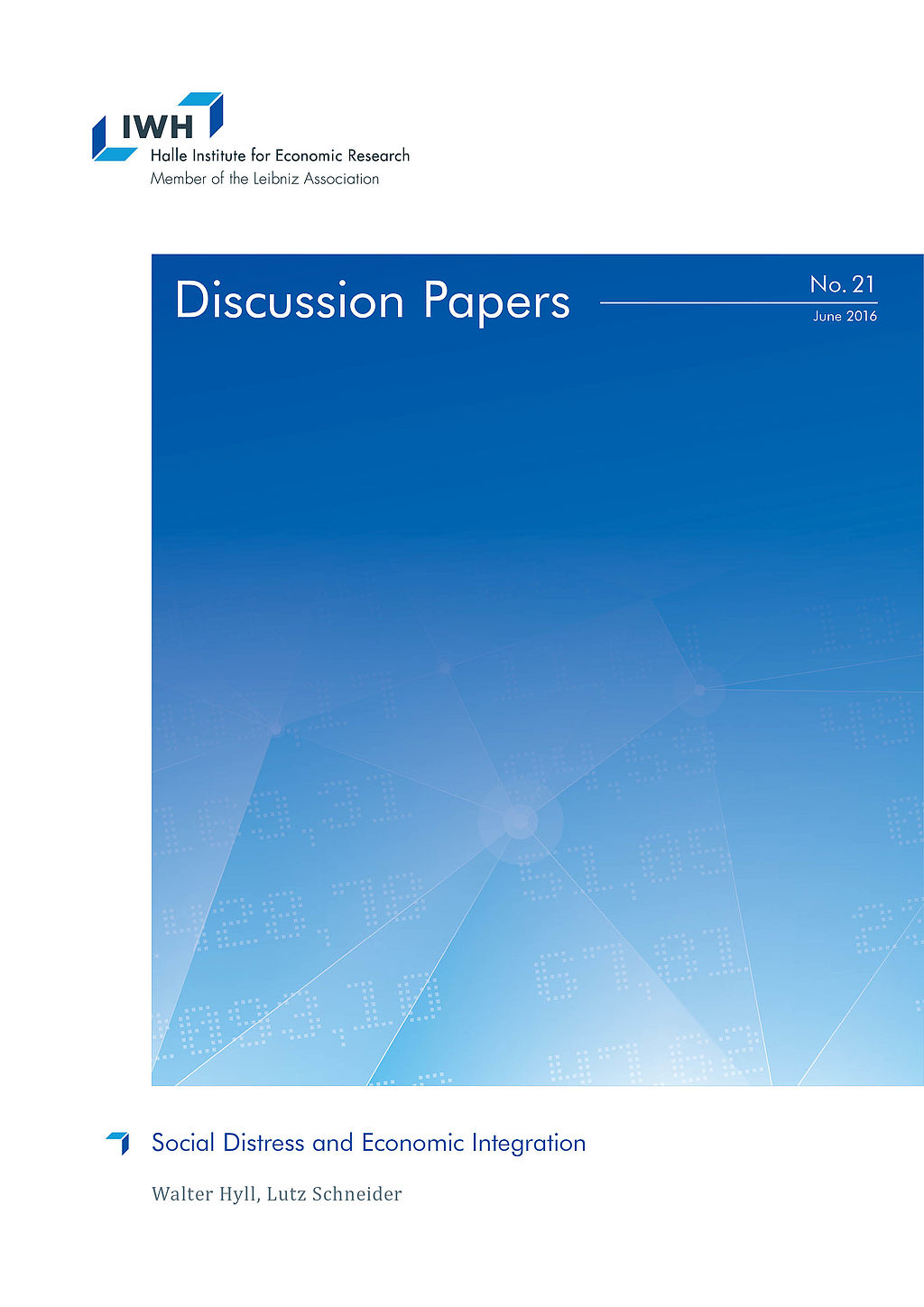Anpassungsfähigkeit und Resilienz des Finanzsystems
Diese Forschungsgruppe untersucht kritische Aspekte der Anpassungsfähigkeit und Widerstandsfähigkeit von Finanzsystemen. Sie analysiert die Auswirkungen von Naturkatastrophen auf Finanzsysteme, die Auswirkungen politischer Präferenzen für die grüne Transformation und die Bedeutung von Kultur in den Volkswirtschaften.
Forschungscluster
Finanzresilienz und RegulierungIhr Kontakt

Mitglied - Abteilung Finanzmärkte
PROJEKTE
07.2016 ‐ 12.2018
Relationship Lenders and Unorthodox Monetary Policy: Investment, Employment, and Resource Reallocation Effects
Leibniz-Gemeinschaft
We combine a number of unique and proprietary data sources to measure the impact of relationship lenders and unconventional monetary policy during and after the European sovereign debt crisis on the real economy. Establishing systematic links between different research data centers (Forschungsdatenzentren, FDZ) and central banks with detailed micro-level information on both financial and real activity is the stand-alone proposition of our proposal. The main objective is to permit the identification of causal effects, or their absence, regarding which policies were conducive to mitigate financial shocks and stimulate real economic activities, such as employment, investment, or the closure of plants.
01.2015 ‐ 12.2019
Interactions between Bank-specific Risk and Macroeconomic Performance
Deutsche Forschungsgemeinschaft (DFG)
Referierte Publikationen

Bank Relationships and Firm Profitability
in: Financial Management, Nr. 1, 2001
Abstract
This paper examines how bank relationships affect firm performance. An empirical implication of recent theoretical models is that firms maintaining multiple bank relationships are less profitable than their single-bank peers. We investigate this empirical implication using a data set containing virtually all Norwegian publicly listed firms for the period 1979-1995. We find that profitability is substantially higher if firms maintain only a single bank relationship. We also find that firms replacing a single bank relationship are on average smaller and younger than firms not replacing a single bank relationship.

Price Competition between an Expert and a Non-Expert
in: International Journal of Industrial Organization, Nr. 6, 2000
Abstract
This paper characterizes price competition between an expert and a non-expert. In contrast with the expert, the non-expert's repair technology is not always successful. Consumers visit the expert after experiencing an unsuccessful match at the non-expert. This re-entry affects the behavior of both sellers. For low enough probability of successful repair at the non-expert, all consumers first visit the non-expert, and a 'timid-pricing' equilibrium results. If the non-expert's repair technology performs well enough, it pays for some consumers to disregard the non-expert a visit. They directly go to the expert's shop, and an 'aggressive-pricing' equilibrium pops up. For intermediate values of the non-expert's successful repair a 'mixed-pricing' equilibrium emerges where the expert randomizes over the monopoly price and some lower price.

The Total Cost of Trading Belgian Shares: Brussels versus London
in: Journal of Banking and Finance, Nr. 9, 1999
Abstract
Since 1990, London’s SEAQ International (SEAQ-I) has attracted considerable trading volume in Belgian equities. This paper investigates competition between the Brussels CATS market and London’s SEAQ-I. Toward this end, we gathered extensive limit order book data as well as transactions and quotation information. With regard to liquidity (indirect costs), measured by the quoted and effective bid–ask spread, the paper concludes that CATS outperforms SEAQ International for both measures. The effective spread is of course substantially smaller than the quoted spread, with the CATS effective spread showing a U-shaped form. This paper, unique in employing an extensive data set that includes all hidden orders and the whole limit order book, produces results in line with the different market microstructure models. Total trading costs on CATS are lower (higher) for small (large) trade sizes.

On the Interaction between Vertical and Horizontal Product Differentiation: An Application to Banking
in: Journal of Industrial Economics, Nr. 2, 1996
Publikation lesen
Phonebanking
in: European Economic Review, Nr. 2, 1995
Abstract
In a two-stage game, we study under what conditions banks offer phonebanking (first stage). In the second stage, they are competitors in the market for deposits. Offering the phone option creates two opposing effects. The first is a demand effect as depositors strictly prefer to manage some of their financial transactions by phone. The second (strategic) effect is that competition is increased as transaction costs are lowered. Universal phonebanking prevails when the demand effect dominates the strategic effect. Specialization can occur in that one bank offers the phone option while the other does not.
Arbeitspapiere

Corporate Governance Structures and Financial Constraints in Multinational Enterprises – An Analysis in Selected European Transition Economies on the Basis of the IWH FDI Micro Database 2013 –
in: IWH Discussion Papers, Nr. 3, 2015
Abstract
In our analysis, we consider the distribution of decision power over financing and investment between MNEs’ headquarters and foreign subsidiaries and its influence on the foreign affiliates’ financial restrictions. Our research results show that headquarters of multinational enterprises have not (yet) moved much decision power to their foreign subsidiaries at all. We use data from the IWH FDI Micro Database which contains information on corporate governance structures and financial restrictions of 609 enterprises with a foreign investor in Hungary, Poland, the Czech Republic, Slovakia, Romania and East Germany. We match data from Bureau van Dijk’s AMADEUS database on financial characteristics. We find that a high concentration of decision power within the MNE’s headquarter implicates high financial restrictions within the subsidiary. Square term results show, however, that the effect of financial constraints within the subsidiary decreases and finally turns insignificant when decision power moves from headquarter to subsidiary. Thus, economic policy should encourage foreign investors in the case of foreign acquisition of local enterprises to leave decision power within the enterprise and in the case of Greenfield investment to provide the newly established subsidiaries with as much power over corporate governance structures as possible.


















